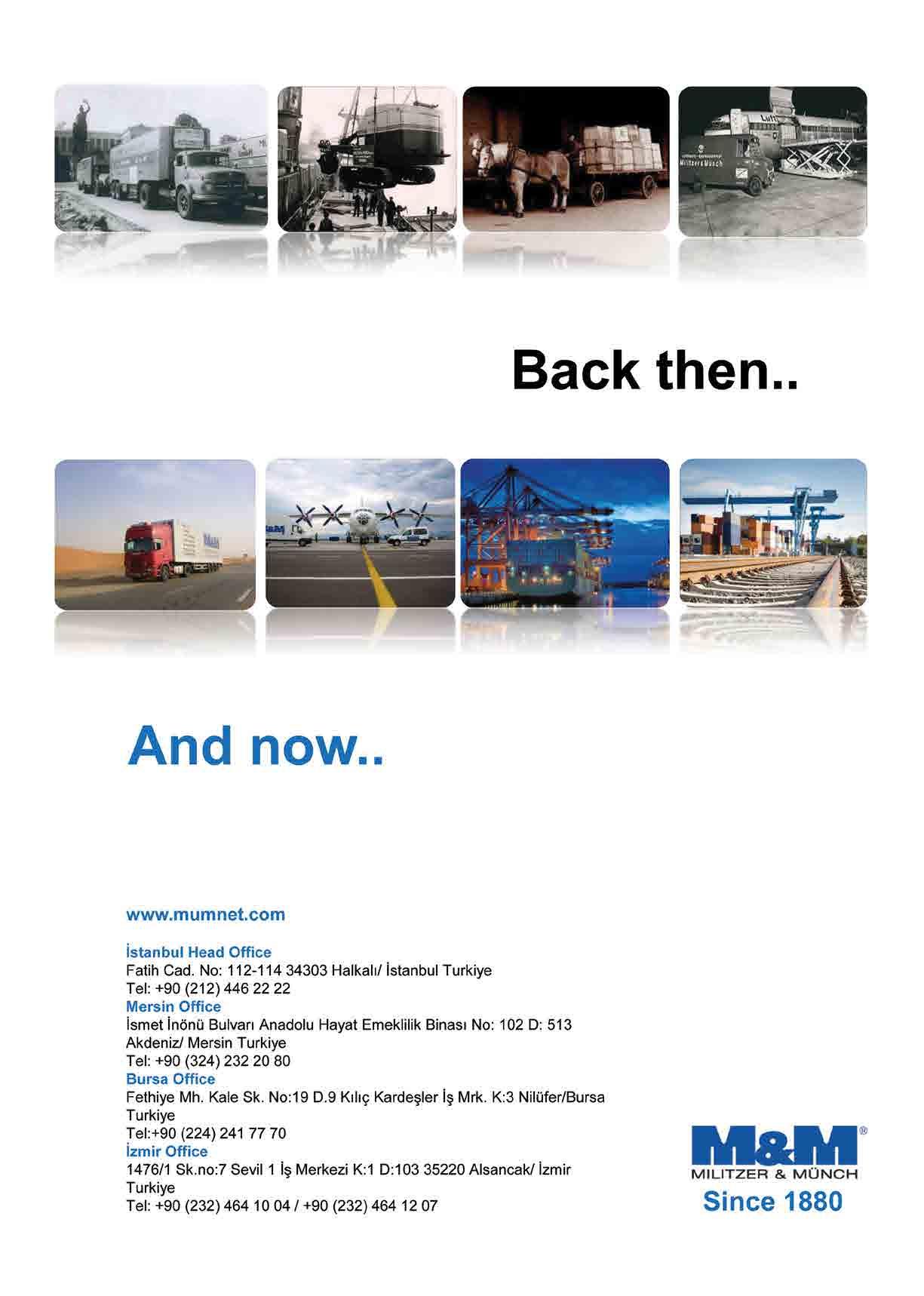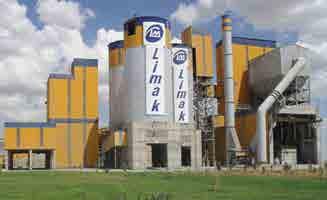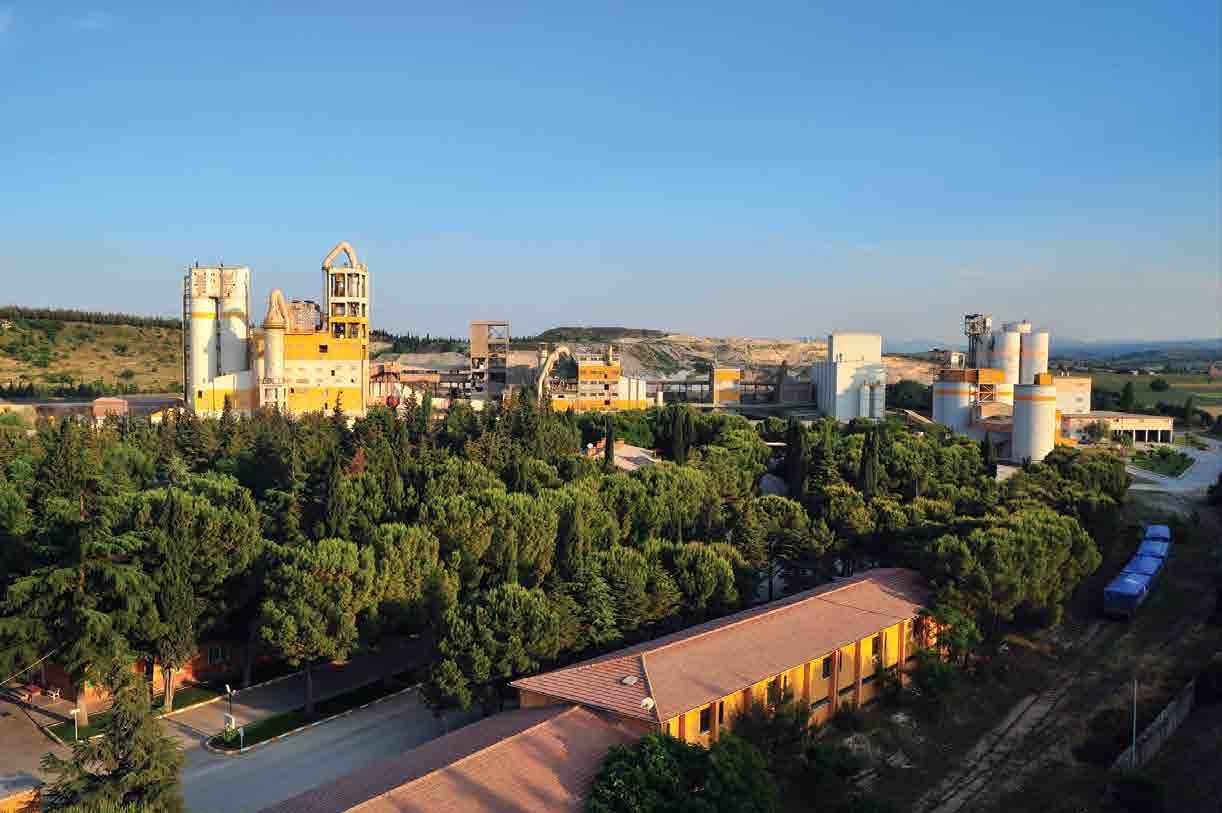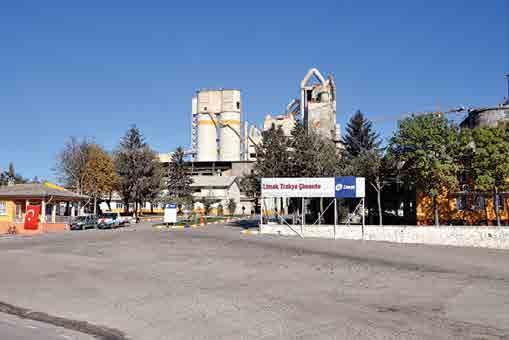
5 minute read
Building growth through investment Limak Group
BUILDING GROWTH
THROUGH INVESTMENT
Turkey’s Limak Group provides the market with clinker, cement, concrete and aggregate, all produced according to international quality standards. The group’s CEO Gültekin Aksüyek spoke to Industry Europe about its continuous commitment to investment with a focus on modernising, increasing output and improving energy efficiency.
The Limak Cement Group has the third largest manufacturing capacity amongst Turkish companies. It maintains this position through continuous capacity expansion, modernisation and energy efficiency improvements across all its factories.
Having begun with the establishment of Limak Construction in 1976, the Limak Group of companies now operates in the tourism, cement, energy, infrastructure, airport management and operations, port management, food and aviation sectors. The group first entered the cement business in 2000 when it purchased the Siirt Kurtalan Cement Factory. Its interests in the sector grew in 2006 when it bought factories in Ergani and Gaziantep by way of an asset purchase from the Turkish Savings Deposit Insurance Fund. In 2007 it acquired the Urfa cement factory from the Turkerler Group by means of a share purchase.
This pattern continued with the acquisition of a cement grinding plant in Bitlis in 2008 and the Mardin-Derik cement grinding plant in 2009. This was followed by the acquisition of four cement factories located in Ankara, Balıkesir, Thrace and Ambarlı as well as 12 ready-mix concrete facilities from Set-Italcementi in 2011. Most recently the group purchased the Egeçim cement grinding plant located in Manisa.
As stated above, the group’s main production activities are in the areas of clinker, cement, concrete and aggregate. Its latest product, CEM PLUS + (flyash cement) was developed and launched from the Balıkesir cement factory and is already selling well.
Position in Turkey and abroad
The Limak Group accounted for 11 per cent of the total cement produced in Turkey in 2012 and holds a nearly 12 per cent share of domestic sales as well as 7 per cent of



Turkish cement exports. It is the country’s third largest producer of clinker, with a capacity of 6 million tonnes per annum, and secondbiggest producer of cement, with a capacity of 12 million tonnes per year in total. It is now working to increase its capacity in a number of factories to keep up with growing regional and national demand.
Mr Aksüyek stated that a precalsination system and clinker production line are being planned for its Thrace and Balıkesir factories. Once these investment projects are completed in June 2014, Limak will be the second biggest clinker and cement producer in the country.
The group is also in the process of establishing a new facility which already has an certified environmental impact assessment report (EIA) with 1.4 million tonnes of capacity. The plans for this are currently in the tender phase. In another location, plans are underway to set up a new plant with a capacity of 1.4 million tonnes. Both of these facilities are expected to be operational by the start of 2016 and it is expected that when this happens Limak will become the single largest clinker and cement producer in Turkey.
Meanwhile the establishment of further integrated cement plants and grinding packing plants in different locations abroad continue. This continuous investment has seen Limak’s sales grow by 7.6 per cent in 2012 while Turkey’s total cement production decreased by 0.52 per cent.
In terms of exports, Limak currently sells to Iraq, Syria, Bulgaria, Macedonia and Serbia and is looking to expand into Africa in the near future. As part of its company policy, it exports the cement that is not consumed in the domestic market. In 2012 exports amounted to 10 per cent of its total sales, but this percentage is expected to increase significantly next year when foreign expansion projects are completed. For example, it plans to export


clinker from the Thrace factory after the new capacity increase in the grinding facilities which are set to be established abroad.
Dynamic Turkish construction market
Mr Aksüyek said that the domestic market has been growing considerably, particularly in the wake of major urban transformation projects and the increase of land being made available for building works. He also highlighted other developments such as the easing of regulations for foreign property ownership and the construction of the new Istanbul airport, roads and other infrastructure, which has led building material suppliers to invest in increasing capacity in their existing factory as well as in building new ones. In the light of these developments, Limak expects a growth rate of 3.5–4 per cent in Turkey alone when it comes to cement production. Environmental investments
Limak Cement has already completed several rounds of investment into energy efficiency, including the establishment of a precalcination system, modern grinding systems, and new energy saving and efficiency cement mills at its integrated plants. All this is expected to bring about energy savings of 100 million kWh per annum.
With regard to de-dusting investments, Limak has been installing new bag filters with low dust emissions and closed stocking areas for raw material in all its plants. To do its part in tackling the issue of global warming, new kiln investments are being implemented using low-NOx technology.
Aiming for the top
Despite the company’s considerable success so far, it is clear that Mr Aksüyek and his colleagues will continue to push the company forward by setting ambitious aims for the future. In the medium term, Limak Cement is striving to become Turkey’s number-one producer of both clinker and cement. This is underpinned by the company’s sound understanding of its sector and its executives’ belief that it can continue to make an important contribution through its innovative and solutions-based approach and environmentally friendly products.
When it comes to the global economic crisis, the Limak Group’s management has not allowed it to impede growth. There are no plans to slow or postpone any of its investment plans. As for its global ambitions, Mr Aksüyek is confident that the firm is well placed to become a heavyweight global player thanks to its new approach to investment in developing countries aimed at acquiring existing factories and, when needed, building new ones. n












